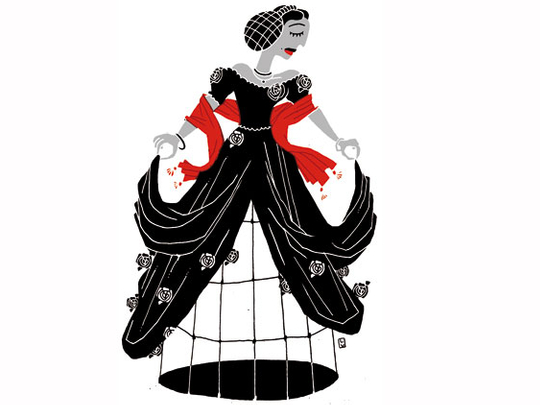
On a cold January afternoon in 1649, a masked executioner brought an axe down on King Charles I's neck, beheading him. It is said that the king wore extra vests, so his shivering wouldn't be mistaken for fear as he faced his death.
One week later, the monarchy was abolished. It was a time of turmoil for Britain, which didn't necessarily end when Charles II returned to rule in 1660 upon the re-establishment of the monarchy.
Nine who signed King Charles I's death warrant, convicted of regicide, were hanged, drawn and quartered, while Oliver Cromwell (leader of the civil wars) was exhumed from Westminster Abbey and reburied in a common pit.
It is also said that Cromwell's body was symbolically beheaded.
No one knows to this day who the exe-cutioner was. Perhaps, though, 7-foot tall Welshman Thomas Carrier (as family legend and local Massachusetts lore has it) was that masked man.
The mystery of the Welshman and his relationship with Martha Allen unravels in Kathleen Kent's The Traitor's Wife.
What makes the work more notable is that Kent is a ten-generation descendant of Allen (later Martha Carrier), who was among the first to be tried and hanged for witchcraft in the Salem witch trials.
Fiction based on historical fact, the book takes the reader on a journey from Cromwell and the fall of the Stuarts in Britain, to the wilds of colonial Massachusetts during the time of the American Puritans — 103 years before the Declaration of Independence. It is gripping in places, with raw descriptions of the plague, a wolf attack, a difficult labour and stillbirth in the times before modern medicine.
Martha and Thomas's love affair is a welcome complement to the underlying intrigue of the story — Carrier is being pursued by men sent by Charles II, who is intent on hunting down the executioners of his father.
Told from Martha's perspective, the book sheds light on the social expectations and constrictions of a single unmarried woman of the time.
Martha has not found a husband and is expected to. Sent to her cousin's to help her with a difficult, sickness-filled pregnancy, she finds herself intrigued by the huge Welshman.
Emotions run high in the household before, during and after the loss of her cousin's son.
Martha's social standing in the house is even questioned and she is mistaken for a servant by an outsider at one point.
The Traitor's Wife is Kent's second novel. The first, The Heretic's Daughter, is an international bestseller, having sold more than 200,000 copies worldwide.
In a similar vein, The Heretic's Daughter follows Martha Carrier and her daughter Sarah through the hysteria and superstition of the Salem trials.
Sarah tells the story through her eyes, surviving her mother who was hanged after the trial.
Kent lives in Dallas with her husband and son. She has undertaken significant historical research about the Salem witch trials, which resulted in more than 200 people being tried, tortured and imprisoned for witchcraft. Her research included studying transcripts showing Martha Carrier's defiance in court during her trial.
Kent has written that historical fiction books "influenced and touched" her the most and that she read a lot of Dickens, Poe and H.H. Monroe.
The Traitor's Wife is published by Macmillan in the UK and will be available in early November.








